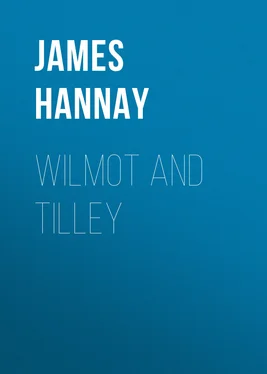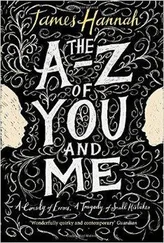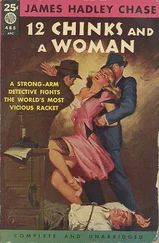James Hannay - Wilmot and Tilley
Здесь есть возможность читать онлайн «James Hannay - Wilmot and Tilley» — ознакомительный отрывок электронной книги совершенно бесплатно, а после прочтения отрывка купить полную версию. В некоторых случаях можно слушать аудио, скачать через торрент в формате fb2 и присутствует краткое содержание. Жанр: foreign_prose, foreign_antique, на английском языке. Описание произведения, (предисловие) а так же отзывы посетителей доступны на портале библиотеки ЛибКат.
- Название:Wilmot and Tilley
- Автор:
- Жанр:
- Год:неизвестен
- ISBN:нет данных
- Рейтинг книги:3 / 5. Голосов: 1
-
Избранное:Добавить в избранное
- Отзывы:
-
Ваша оценка:
- 60
- 1
- 2
- 3
- 4
- 5
Wilmot and Tilley: краткое содержание, описание и аннотация
Предлагаем к чтению аннотацию, описание, краткое содержание или предисловие (зависит от того, что написал сам автор книги «Wilmot and Tilley»). Если вы не нашли необходимую информацию о книге — напишите в комментариях, мы постараемся отыскать её.
Wilmot and Tilley — читать онлайн ознакомительный отрывок
Ниже представлен текст книги, разбитый по страницам. Система сохранения места последней прочитанной страницы, позволяет с удобством читать онлайн бесплатно книгу «Wilmot and Tilley», без необходимости каждый раз заново искать на чём Вы остановились. Поставьте закладку, и сможете в любой момент перейти на страницу, на которой закончили чтение.
Интервал:
Закладка:
AN OBSTRUCTIVE GOVERNOR
Sir Archibald Campbell, soon after the opening of the session of the legislature, in December 1836, requested the House of Assembly to add a suspending clause to any Civil List Bill they might pass, so that he might forward it to the home government for their approval. As this was entirely contrary to the understanding which had been reached between Messrs. Wilmot and Crane and the colonial secretary,—it being understood that the bill if passed in the form agreed upon would be immediately assented to by the lieutenant-governor,—the House of Assembly very naturally refused to comply with Sir Archibald's wishes. He, however, held firm in his resolution, and the Civil List Bill which had been agreed to by the home authorities, after being passed by both Houses, did not receive his assent. At the close of the session, while the matter was under discussion, at the instigation of the lieutenant-governor one of the executive council, Solicitor-General Street, was sent on a secret mission to Downing Street. The object of this mission was to make such representations to the home authorities as would induce them to delay giving their assent to the Civil List Bill. The truth of the matter seems to have been that Sir Archibald Campbell and his advisers in New Brunswick thought if they could only gain time the Liberal government of England which had granted such favourable terms to the province might be defeated, and a Tory government come into power which would speedily undo all that their predecessors had done, and refuse to grant any concessions to the legislature of New Brunswick. There was great excitement in the province in consequence of the action of the lieutenant-governor, and this excitement was fairly voiced in the House of Assembly, where an address was prepared representing the condition of affairs to His Majesty, and detailing the manner in which the lieutenant-governor had sought to thwart the intentions of the imperial government. This address was passed by a vote of twenty-seven to two, the only members of the House who ventured to stand with the man who occupied Government House being John Ambrose Street and William End.
CIVIL GOVERNMENT BILL PASSED
Messrs. Crane and Wilmot were again appointed a deputation to proceed to England with the address of the House of Assembly, and took their departure two days after it was passed, amidst great popular demonstrations by the citizens of Fredericton. The legislature was prorogued on March 1st, on which day the House of Assembly again requested the lieutenant-governor to pass the Civil List Bill, pointing out that under the arrangements made with the colonial office it was his duty to do so, but their request fell upon deaf ears. In the speech proroguing the legislature, Sir Archibald Campbell stated that he had withheld his assent from this bill because a suspending clause had not been appended to it. These were the last words that this obstinate governor was destined to speak before a New Brunswick legislature. Finding that all his hopes of impeding the progress of the province in the direction of political liberty were in vain, he tendered his resignation to save himself from being removed, as he would have been, for his direct disobedience to the commands of his superiors in England. 1 1 This is shown by the correspondence of Sir John Harvey with the colonial office. Sir John was then governor of Prince Edward Island.
Sir John Harvey, another soldier, but a man of a very different spirit, was appointed to succeed him as lieutenant-governor. The Civil List Bill was again passed at a special session of the legislature and received the assent of the governor, becoming law on July 17th, 1837. From that time to the present, the province of New Brunswick has controlled the revenues which it derives from its Crown lands and similar sources, and, whether wisely expended or not, the people of this province have at least the satisfaction of knowing that the money is appropriated by their own representatives, and by a government which is responsible to them for its actions.
The death of King William IV took place during the summer of 1837, and brought about another general election. Mr. Wilmot again stood for the county of York and was returned at the head of the poll. This was only a proper recognition of his eminent services to the province in the legislature and as a delegate to England. At this election, Charles Fisher, a young lawyer, was also returned for the county of York. Mr. Fisher, although not so fluent a speaker as Wilmot, was second to no man in the legislature in devotion to Liberal principles, and he proved a most valuable lieutenant in the battle for responsible government which now began. The contest for the control of the Crown lands of the province had been won, but a still more difficult task remained for the friends of constitutional principles to accomplish,—the making of the executive responsible to the people. The members of the House of Assembly had been almost unanimous in demanding the control of the Crown lands, but, when it came to applying the principles of responsible government to the affairs of the province generally, there were many deserters from the ranks of those who had called themselves Reformers. This was partly due to the principles of responsible government not being well understood even by some members of the legislature, and partly to the fact that the question did not touch the self-interest of the members in the same manner as the mismanagement of the Crown lands department had done.
Under a thoroughly constitutional system of government the initiation of money grants would have been in the hands of the executive, but in 1837 not a single member of the executive council had a seat in the House of Assembly. Three of the five members of the executive council were also members of the legislative council, but the two others had no seat in either House, a fact which shows on what lax principles the executive was constructed. The initiation of money grants being in the House of Assembly, any private member had it in his power to move an appropriation of money for any object that he pleased. In this way a system of "log rolling" was inaugurated in the legislature, which resulted in extravagant expenditures and the appropriation of money for objects which, under a better system, would not have received it. It was impossible to put any check upon the expenditure or to keep it within the income under such an arrangement, and one of the first efforts of the Reformers was therefore directed to the removal of this abuse. Unfortunately this was, of all the proposed reforms in the constitution, the one most difficult to carry, and it was not accomplished until after Wilmot had retired from public life.
KING'S COLLEGE
One of the subjects which engaged the attention of Mr. Wilmot, at an early period of his legislative career, was the charter of King's College. This charter had been obtained in 1828 from His Majesty, King George IV, and the legislature had granted the college an endowment of eleven hundred pounds currency a year, in addition to ten hundred pounds sterling granted by the king out of the casual and territorial revenues of the province. The aim of the charter was to make the college a Church of England institution exclusively, for it provided that the bishop of the diocese should be the visitor of the college, and that the president should always be a clergyman in holy orders of the United Church of England and Ireland. No religious test was required of students matriculating or taking degrees in arts, but the council of the college, which was the governing body, was to be composed of members of the Church of England, who, previous to their appointment, had subscribed to the thirty-nine articles. The professors, to the number of seven, who were members of the Church of England, were to be members of the council, so that, although no religious test was required of them, it was reasonably certain that none but persons of that denomination would be appointed to professorships. These terms were much complained of, and surely it was absurd to place a provincial college under the control of a single denomination which could not claim more than one-third of the population of the province as belonging to its communion. It is stated in Fullom's Life of Sir Howard Douglas , who was lieutenant-governor of the province at the time, that the charter would have been much less liberal than it was if it had not been for his efforts. The Bishop of Nova Scotia and the Bishop of London desired to confine it entirely to students belonging to the Church of England, and to make subscription to the thirty-nine articles a condition precedent to the granting of degrees in arts. On the other hand, Attorney-General Peters in 1845, when the amendments to the charter were discussed in the legislative council, stated that the charter as originally drafted and sent to England was much more liberal in its provisions than when finally passed, but that in 1828, to the surprise of Sir Howard Douglas, the then existing charter came out copied from one obtained by Dr. Strachan for Upper Canada. If this statement was correct, it affords a singular illustration of the injury that the bigotry of one man can cause to future generations. If King's College had treated all denominations on equal terms, all would have resorted to it for higher education. As it was, it became the college of only a section of the people, the different denominations established colleges of their own, and when finally the connection between the Church of England and King's College was severed and it became the University of New Brunswick, the denominational colleges had become so well established that it could hardly compete with them on equal terms.
Читать дальшеИнтервал:
Закладка:
Похожие книги на «Wilmot and Tilley»
Представляем Вашему вниманию похожие книги на «Wilmot and Tilley» списком для выбора. Мы отобрали схожую по названию и смыслу литературу в надежде предоставить читателям больше вариантов отыскать новые, интересные, ещё непрочитанные произведения.
Обсуждение, отзывы о книге «Wilmot and Tilley» и просто собственные мнения читателей. Оставьте ваши комментарии, напишите, что Вы думаете о произведении, его смысле или главных героях. Укажите что конкретно понравилось, а что нет, и почему Вы так считаете.












